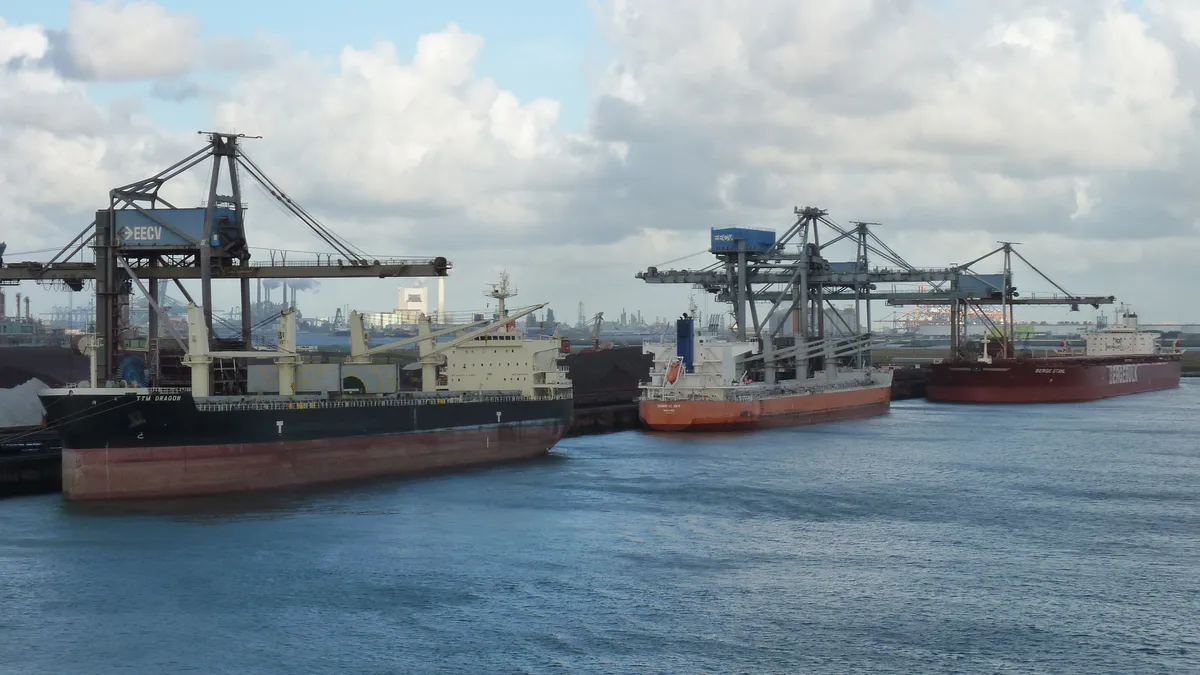Dive Brief:
- The European Sea Ports Organization (ESPO) is calling on Brexit negotiators to make maritime transport and the flow of goods between ports a priority in their talks.
- ESPO warns reintroduction of border controls between the U.K. and European Union creates port congestion and "risks to turn ports into bottlenecks and disrupt long established supply chains."
- The organization also asks negotiators to consider the additional costs to ports of reorganizing terminals in order to "Brexitproof" their operations, and asks for a "sufficiently long transition period" to make the accomodations.
Dive Insight:
About half of Britain's exports and imports are to and from the EU, and most of those transports happen by sea, according to ESPO.
With the U.K.'s divorce from the European Union, goods arriving to ports will face stricter controls.
"Goods transported between the U.K. and the EU will change status, from Union goods to non-Union goods," ESPO stated. "This change of status means that the amount of formalities which will have to be declared to border inspection authorities will greatly increase."
At Europe's busiest port in Rotterdam, imports from the U.K. make up 8.5% of total throughput. To inspect the goods post-Brexit, the port will require more than 100 customs officers, along with added inspection points.
The additional formalities of clearing goods through customs "may increase waiting times, subsequently increasing costs for freight forwarders, operators and terminal operators," the port stated. "It seems that no winners result out of the Brexit."
If the customs and inspections processes aren't streamlined, ships can easily pile up, creating delays for carriers, shippers and even trucks waiting to load at the port. Coupled with increasing shipping demand fueled by e-commerce, Brexit becomes a recipe for port congestion.














